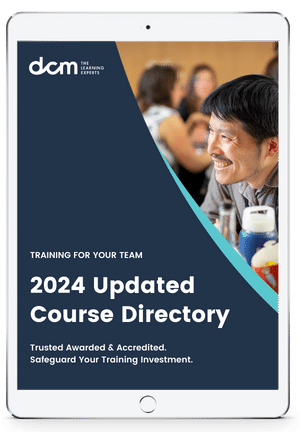What Is SEO?
SEO stands for search engine optimization - that much has stayed the same. It refers to techniques that help your website rank higher in search engine results pages (SERPs). This makes your website more visible to people who are looking for solutions that your brand, product, or service can provide via search engines like Google, Yahoo!, and Bing.
What hasn't stayed the same are the techniques we use to improve our rankings. This has everything to do with the search algorithms that these companies constantly change.
How Does SEO Work?
SEO works by optimizing a website's pages, conducting keyword research, and earning inbound links. You can generally see results of SEO efforts once the webpage has been crawled and indexed by a search engine.
There are a ton of ways to improve the SEO of your site pages, though. Search engines look for elements including title tags, keywords, image tags, internal link structure, and inbound links (also known as backlinks). And that's just to name a few.
Search engines also look at site structure and design, visitor behaviour, and other external, off-site factors to determine how highly ranked your site should be in their SERPs.
What Is an Organic Search?
Organic search refers to someone conducting a search through a search engine and clicking on a non-paid result. Organic search is a search marketing channel that can be used as part of inbound marketing to increase website traffic.
In present-day SEO, you can't simply include as many keywords as possible to reach the people who are searching for you. In fact, this will actually hurt your website's SEO because search engines will recognize it as keyword stuffing - or the act of including keywords specifically to rank for that keyword, rather than to answer a person's question.
Nowadays, you should use your keywords in your content in a way that doesn't feel unnatural or forced. There isn't a magic number - it all depends on the length of your keyword and article - but if you feel like you're forcing it, it's better to ignore it and continue writing naturally.
What Is SEO Strategy?
An SEO marketing strategy is a comprehensive plan to get more visitors to your website through search engines. Successful SEO includes on-page strategies, which use intent-based keywords; and off-page strategies, which earn inbound links from other websites.
Before you create a new site page or blog post, you'll probably be thinking about how to incorporate your keywords into your post. That's alright, but it shouldn't be your only focus -- or even your primary focus. Whenever you create content, your focus should be on the intent of your audience, not how many times you can include a keyword (whether it's long tail or short tail) in your content.
The Importance of SEO
SEO is important because it helps people find information and discover pages on the world wide web. SEO is especially important for businesses as it ensures they're answering their audience's biggest questions on search engines while driving traffic to their products and services.
In the past, SEO success was measured by whether or not you were ranked high on the first page of Google. But even if you ranked well for a term, does that actually mean you're going to see results?
Not always. You might rank really well for terms that aren't ideal for your business. So you appear high on search engines, get a ton of traffic, but then your website visitors realize your company isn't what they were looking for. You don't convert customers from this traffic, and ranking high for this particular keyword is essentially fruitless.
Also, you don't necessarily need to be in the top three slots to be successful. In fact, if you rank well on subsequent pages, you may still have a high clickthrough rate, albeit less traffic. That's great news for marketers who can't seem to bring pages into those top slots or off the second page.
We said it before and we'll say it again: The amount of traffic to your page is less important than how qualified that traffic is.
How to Do SEO
1. Conduct an audit of your website content.
2. Use a keyword research tool to identify the keywords with which people are finding you.
3. Target new keywords you'd like to rank for.
4. Develop new content and optimize existing content.
5. Monitor your website's performance.
6. Purchase inbound marketing or SEO software.
7. Examine the web pages that are performing well.
8. Look for opportunities to earn inbound links from similar websites.
9. Monitor your change in rankings and traffic.
Source: Hubspot
_165x115_fc3.jpg) Digital Marketing Strategy | What it is and how to create one
Digital Marketing • Digital Marketing Strategy
Digital Marketing Strategy | What it is and how to create one
Digital Marketing • Digital Marketing Strategy


_165x115_fc3.jpg)




